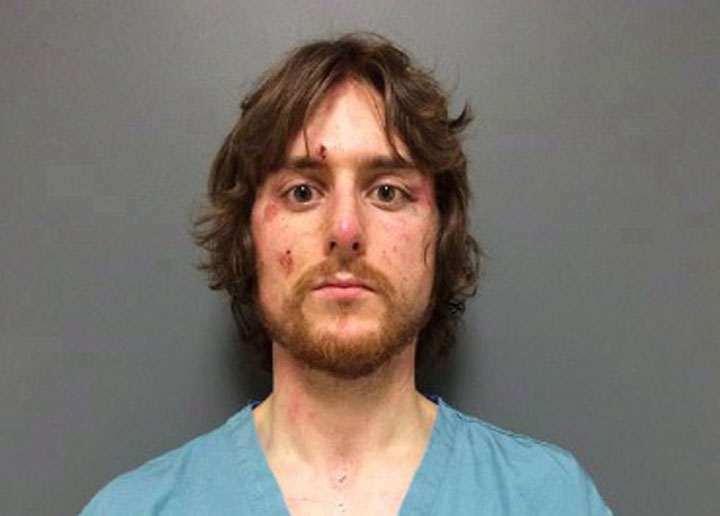HALIFAX – The Law Society of New Brunswick says it will not appoint a lawyer to look into an appeal of the sentence of Justin Bourque after a prominent Quebec lawyer raised concerns about the case and the Mountie killer’s unprecedented sentence.

Quebec lawyer Jean-Claude Hebert is critical of how Bourque’s lawyer handled the case and says there are numerous possible grounds for an appeal. Hebert said New Brunswick’s law society has a social obligation to help people like Bourque and a lawyer should be appointed to try and convince Bourque to get on board with an appeal.
READ MORE: Justin Bourque to serve 75 years before parole eligibility for RCMP killings
“The bar is a legal organization and they have a social mandate,” said Hebert. “We need to help people like Mr. Bourque. They need to have proper legal consultation.”
Bourque received a life sentence with no chance of parole for 75 years, the harshest sentence Canada has seen since the last state-sanctioned executions in 1962. It was the first time a 75-year sentence was given under a section of the Criminal Code that was amended in 2011. The amendment gives the judge the option of extending parole eligibility in the case of multiple murders.
“It is my opinion and the opinion is shared by many lawyers that the law itself is contrary to the Charter of Rights,” said Hebert in a phone interview from Montreal.
Law society executive director Marc Richard said the group does not get involved in individual cases. He said it’s not in the society’s mandate to make judgements on the quality of service that Bourque’s lawyer David Lutz provided.
“Why should we accept Mr. Hebert’s position over Mr. Lutz’s position? We can’t do that. It’s not our role,” said Richard. “For us to start questioning it, it means that we’re questioning the job that was done by a lawyer and we don’t have the tools to evaluate whether he did a proper job or not. It’s not our role to do that.”
Richard said Hebert is welcome to take on the task himself. Hebert said if no one was willing, he would consider it.
Hebert said Bourque’s case went through the courts too quickly and a preliminary inquiry should have been held so the defence would have had an opportunity to cross-examine the psychiatric evidence.
“I don’t understand why Mr. Lutz agreed with the Crown to recognize that his client had the premeditated intention. He should waited until the Crown proved that,” said Hebert in the interview.
But Lutz said he was merely following the instructions of his client.
“There really wasn’t a defence. Mr. Bourque plead guilty. The only issue was sentencing and I had specific instructions from him and his family to ask for the sentence I asked for,” said Lutz of his recommendation of a 50-year sentence.
Lutz said he was never instructed by Bourque to appeal the sentence.
Bourque killed constables Dave Ross, 32, Fabrice Gevaudan, 45, and Doug Larche, 40. Constables Eric Dubois and Darlene Goguen were also injured in shooting rampage last June.
Other members of the law community have also expressed concerns with Bourque’s sentence.
Peter Sankoff, a professor of law at the University of Alberta, said the length of the sentence has been a topic of discussion among some lawyers across Canada since it was imposed last October.
“Whether it’s right or wrong in the circumstances requires really careful assessment,” said Sankoff from Edmonton. “Seventy five years has never been ordered, and the section (of the Criminal Code) is controversial, so you have good grounds for a challenge.”

Comments